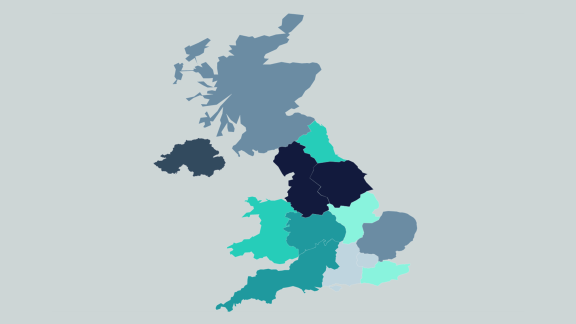Quick guide: Code of Practice for International Recruitment

This resource is designed to quickly outline the Code of Practice for International Recruitment, highlight important definitions, list the countries the UK cannot currently actively target, and explain the guiding principles which health and social care employers, contracting bodies, recruitment organisations, agencies, and collaborations should follow when sourcing candidates from overseas.
Active international recruitment – the definition
Active international recruitment is the process by which UK health and social care employers (including local authorities) and any other organisation involved in the recruitment (including but not limited to contracting bodies, recruitment organisations, agencies, collaborations and sub-contractors) target individuals to market UK employment opportunities, with the intention of recruiting to a role in the UK health or social care sector. It includes both in person and online approaches whether or not these actions lead to substantive employment.
This can include (but is not limited to):
- advertising to candidates through any medium. This includes asking current international employees to share information about vacancies with friends or family in red list countries
- incentivisation activities such as referral bonus schemes
- referring candidates to specific vacancies in the UK in return for a fee from the employing organisation. It is illegal under section 6(1) of the Employment Agencies Act 1973 for recruitment organisations of any type to charge fees to the individual applicant for job-finding services
- where a candidate has already been appointed to a specific role by a UK employer following an independent direct application (defined below), recruiting organisations can support and facilitate the employee’s passage to the UK. If required, it is the responsibility of the recruitment organisation, agency or collaboration to provide evidence that the services they are providing are permitted under this exception.
Direct application – the definition
A direct application is when an individual makes an application to a specific advertised role on their own behalf to an employing organisation. Direct applications do not use a third party, such as a recruitment organisation, agency or collaboration.
Individual health and social care employers may consider direct applications from individuals who are resident in countries on the code red and amber list if they have made a direct application to a vacancy at their organisation.
A direct application can only be made in response to a specific advertised vacancy that is hosted by, and recruited to, the same sponsoring organisation.
The CoP is based on residency, not nationality, of candidates
Resident refers to the country an individual is living in when they apply for a health or social care job. The rules on active recruitment and direct applications are based on the country within which an individual is resident when they apply for health or social care job, rather than the nationality of the individual or their original country of training.
Employment agencies, organisations, and collaborations are required to appear on the Ethical Recruiters List
- An employment agency is a business that recruits candidates for vacant positions (permanent or temporary), for health and social care employers.
- A recruitment organisation is an organisation that recruits candidates for vacant positions (permanent or temporary) on behalf of a health or social care employer whether or not it is on a commercial basis.
- A recruitment collaboration is a group of organisations that have partnered together to pool resources into a central system to recruit candidates for vacant positions within that collaboration, whether or not it is on a commercial basis.
All of the definitions about come under the statutory definition set out in the Employment Agencies Act 1973 section 13(3).
Health and social care employers and contracting bodies also need to ensure they are compliant with the CoP
- An ‘employer’ means the person or organisation that employs (or employed) an employee.
- Contracting bodies are health or social care providers which contract with health and social care personnel to provide a service, rather than employing them directly. For example, general practitioners who are not salaried may be contracted by NHS England, rather than employed.
Example of active recruitment
A social care provider is recruiting on behalf of several other social care providers. The vacancies are at a number of care homes in the UK. The social care provider receives 30 applications for one of the roles at a care home in London and appoints a candidate resident in Bangladesh - a red list country.
This is active recruitment and in breach of the code of practice as the social care provider is acting in the capacity of a recruitment organisation, having recruited on behalf of another provider.
Example of acceptable recruitment
A social worker resident in Chad - a red list country - makes a direct application to a specific vacancy advertised by a local authority in the UK and is successfully appointed. The local authority requires the support of an employment agency to facilitate the social worker through the remaining part of the recruitment process.
This activity is not in breach of the code of practice as the social worker had already been appointed by the local authority when they approached the agency for support with the remaining part of the recruitment process.
Red List Countries
The map below displays the countries that appear on the red and amber lists and should not be considered for active recruitment to health and social care roles in the UK.
Amber List Countries
Kenya and Nepal are currently on the amber list, this means that international recruitment is only permitted in compliance with the terms of the government-to-government agreements in place for these countries. The CoP sets out the UK’s approach to safeguards against active recruitment from countries with the greatest UHC-related health and care workforce vulnerability, and support for health and social care workforce and health systems.
Kenya
Kenya was placed on the amber list as of 11 November 2021, meaning that employers and recruitment agencies, including NHS Trusts, stopped all active recruitment of health and social care personnel from Kenya to the UK with immediate effect.
While Kenya is not on the WHO Health Workforce Support and Safeguards List it remains a country with significant health workforce challenges. Kenya was added to the amber list in the Code so that it will be protected from unmanaged international recruitment which could exacerbate existing health and social care workforce shortages.
The UK and Kenya signed a bilateral agreement in July 2021. The bilateral agreement remains in the pilot phase (last update, March 2025).
Nepal
Nepal was placed on the amber list as of 22 August 2022. The Department of Health and Social Care (DHSC) announced that the governments of Nepal and of the United Kingdom had signed a Memorandum of Understanding (MOU) on the managed ethical recruitment of Nepalese healthcare workers to the UK as part of a trail.
The MOU enables the manage recruitment of Nepalese healthcare workers to a single NHS Trust, Hampshire Hospitals NHS Foundation Trust via its existing recruitment partners. It was signed on the basis that the active recruitment of health and care workers from Nepal will begin with an initial pilot phase which is still ongoing (last update, March 2025).
Please note, for all health or social care employers (including NHS trusts, private providers, social care organisation, or local authorities) or organisations on the Ethical Recruiters List, the bilateral agreement with Kenya and the MOU with Nepal does not allow active recruitment from these countries. Therefore, any active recruitment from Kenya or Nepal outside of the terms of the bilateral agreement and MOU would be deemed a breach of the Code of Practice. |
Guiding principles
- International migration of health and social care personnel can contribute to the development and strengthening of health and social care systems to both countries of origin and destination countries if recruitment is managed properly.
- Opportunities exist for individuals, organisations and the health and care systems to train and educate and enhance their clinical practice.
- There must be no active international recruitment from countries on the red list, unless there is an explicit government-to-government agreement to support managed recruitment activities that are undertaken strictly in compliance with the terms of that agreement.
- Recruitment of international health and social care personnel is monitored through published immigration, regulator and employer data.
- International health and social care personnel will have the same legal rights and responsibilities as domestically trained staff in all terms of employment and conditions of work. They will have the same access to further education and training and continuous professional development.
Best practice benchmarks
- There is no active recruitment of health and social care personnel from countries on the red country list.
- International recruitment will follow good recruitment practice and demonstrate a sound ethical approach.
- International health and social care personnel will not be charged fees for recruitment services in relation to gaining employment in the UK.
- International health and social care personnel will have the appropriate level of English language to enable them to undertake their role effectively and to meet registration requirements of the appropriate regulatory body.
- Appointed international health and social care personnel must be registered with the appropriate UK regulatory body.
- International health and social care personnel required to undertake supervised practice by a regulatory body should be fully supported in this process.
- International health and social care personnel will undergo the normal occupational health assessment before employment.
- All international health and social care personnel will have appropriate pre-employment checks including those for any criminal convictions or cautions as required by UK legislation.
- International health and social care personnel offered a post will have a valid visa before entry to the UK.
- Appropriate information about the post being applied for will be made available so candidates can make informed decisions.
- Recruiters, contracting bodies and employers must observe fair and just contractual practices.
- Repayment clause included in an employment contract must abide by the 4 principles of transparency, proportionate costs, timing and flexibility.
- Newly appointed employees will be offered appropriate support and induction. Employers and contracting bodies should undertake pre-employment and placement preparation to ensure a respectful working environment.
- Employers and recruitment organisations should respond appropriately to applications from international health and social care personnel who are making a direct application.
- International recruitment activities should be recorded to support the monitoring and measurement of international workforce flows and their impact.



